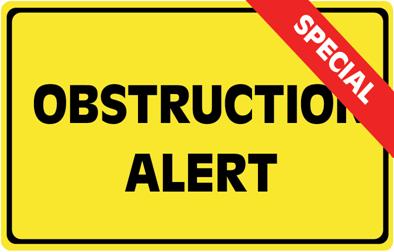
Don’t start no stuff, won’t be no stuff. (photo: Fair Use)
By Don Allen, Publisher
The Minnesota Department of Employment and Economic Development (DEED) has surfed for proposals long enough. The process that DEED now uses is incomplete, lacks vision and obstructs great organizations, people and ideas from being funded. One of the main challenges is DEED’s need for Targeted Group Businesses, that in accordance with Minnesota Rules, part 1230.1810, subpart B and Minnesota Rules, part 1230.1830, certified Targeted Group Businesses and individuals submitting proposals as prime contractors will receive a six percent preference in the evaluation of their proposal, and certified Economically Disadvantaged Businesses and individuals submitting proposals as prime contractors will receive a six percent preference in the evaluation of their proposal. Eligible TG businesses must be currently certified by the Materials Management Division prior to the solicitation opening date and time. This processes is dismissive of small business with small budgets and lets DEED legally bypass and overlook (purposely) the need for a broad collaborative effort to make sure people have the opportunity to work and be successful.
DEED also maintains outrageous insurance requirements that really only cover their (DEED) mistakes and can bankrupt a small company in under 90-days. DEED’s Insurance Requirements:
- Contractor shall not commence work under the contract until they have obtained all the insurance described below and the State of Minnesota has approved such insurance. Contractor shall maintain such insurance in force and effect throughout the term of the contract.
- Contractor is required to maintain and furnish satisfactory evidence of the following insurance policies:
- Workers’ Compensation Insurance: Except as provided below, Contractor must provide Workers’ Compensation insurance for all its employees and, in case any work is subcontracted, Contractor will require the subcontractor to provide Workers’ Compensation insurance in accordance with the statutory requirements of the State of Minnesota, including Coverage B, Employer’s Liability. Insurance minimum limits are as follows:
$100,000 – Bodily Injury by Disease per employee
$500,000 – Bodily Injury by Disease aggregate
$100,000 – Bodily Injury by Accident
If Minnesota Statute 176.041 exempts Contractor from Workers’ Compensation insurance or if the Contractor has no employees in the State of Minnesota, Contractor must provide a written statement, signed by an authorized representative, indicating the qualifying exemption that excludes Contractor from the Minnesota Workers’ Compensation requirements.
If during the course of the contract the Contractor becomes eligible for Workers’ Compensation, the Contractor must comply with the Workers’ Compensation Insurance requirements herein and provide the State of Minnesota with a certificate of insurance.
- Commercial General Liability Insurance: Contractor is required to maintain insurance protecting it from claims for damages for bodily injury, including sickness or disease, death, and for care and loss of services as well as from claims for property damage, including loss of use which may arise from operations under the Contract whether the operations are by the Contractor or by a subcontractor or by anyone directly or indirectly employed by the Contractor under the contract. Insurance minimum limits are as follows:
$2,000,000 – per occurrence
$2,000,000 – annual aggregate
$2,000,000 – annual aggregate – Products/Completed Operations
The following coverages shall be included:
Premises and Operations Bodily Injury and Property Damage
Personal and Advertising Injury
Blanket Contractual Liability
Products and Completed Operations Liability
Other; if applicable, please list__________________________________
State of Minnesota named as an Additional Insured, to the extent permitted by law
- Commercial Automobile Liability Insurance: Contractor is required to maintain insurance protecting it from claims for damages for bodily injury as well as from claims for property damage resulting from the ownership, operation, maintenance or use of all owned, hired, and non-owned autos which may arise from operations under this contract, and in case any work is subcontracted the contractor will require the subcontractor to maintain Commercial Automobile Liability insurance. Insurance minimum limits are as follows:
$2,000,000 – per occurrence Combined Single limit for Bodily Injury and Property Damage
In addition, the following coverages should be included:
Owned, Hired, and Non-owned Automobile
- Professional/Technical, Errors and Omissions, and/or Miscellaneous Liability Insurance
This policy will provide coverage for all claims the contractor may become legally obligated to pay resulting from any actual or alleged negligent act, error, or omission related to Contractor’s professional services required under the contract.
Contractor is required to carry the following minimum limits:
$2,000,000 – per claim or event
$2,000,000 – annual aggregate
Any deductible will be the sole responsibility of the Contractor and may not exceed $50,000 without the written approval of the State. If the Contractor desires authority from the State to have a deductible in a higher amount, the Contractor shall so request in writing, specifying the amount of the desired deductible and providing financial documentation by submitting the most current audited financial statements so that the State can ascertain the ability of the Contractor to cover the deductible from its own resources.
The retroactive or prior acts date of such coverage shall not be after the effective date of this Contract and Contractor shall maintain such insurance for a period of at least three (3) years, following completion of the work. If such insurance is discontinued, extended reporting period coverage must be obtained by Contractor to fulfill this requirement.
###
The requirements by DEED for businesses are outrageous, unreachable and don’t facilitate any outcomes based on local reports that say unemployment in certain zip codes are in double digits for many Minnesotans. This story is the first in a four-part series that explains the inner-workings of an agency that uses antiquated, racist and Jim Crow procedures to marginalize people and small business.
See it all here.

The Minnesota Department of Employment and Economic Development (DEED) has surfed for proposals long enough. The process that DEED now uses is incomplete, lacks vision and obstructs great organizations, people and ideas from being funded. One of the main challenges is DEED’s need for Targeted Group Businesses, that in accordance with Minnesota Rules, part 1230.1810, subpart B and Minnesota Rules, part 1230.1830, certified Targeted Group Businesses and individuals submitting proposals as prime contractors will receive a six percent preference in the evaluation of their proposal, and certified